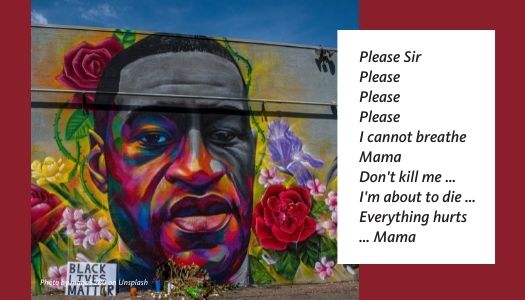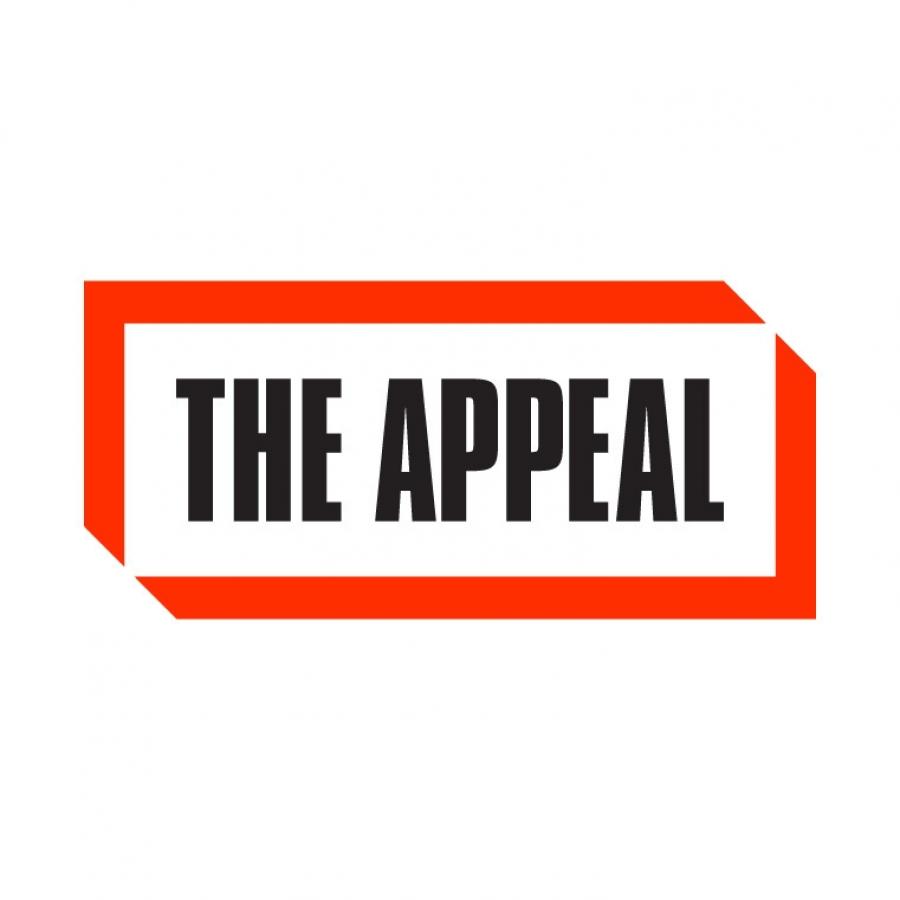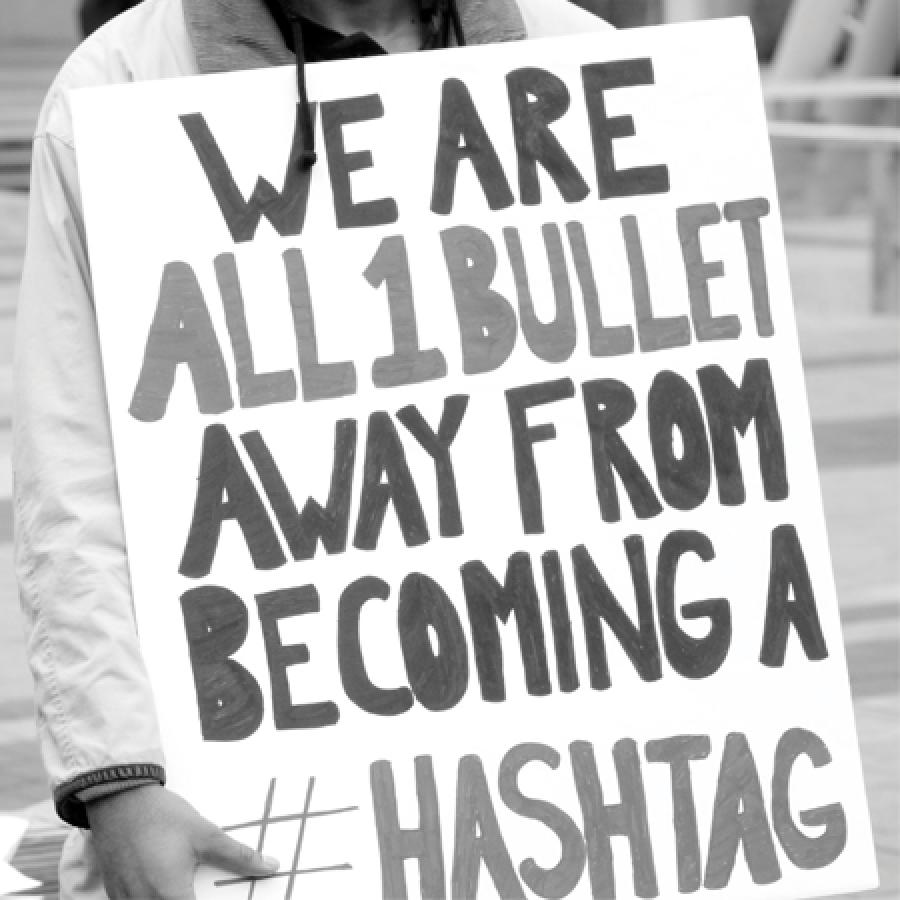Honoring George Floyd (May 25, 2021)
*Content Warning: This post contains content related to George Floyd’s final moments.

One year ago today, George Floyd uttered these haunting, final words, pleading for his humanity to be recognized while he was tortured to death under the knee of Minneapolis Police Officer Derek Chauvin for nearly nine minutes. This monstrous act forced the nation to again confront the inherent brutality of policing and reckon with how systemic racism created the context for Floyd’s murder and so many others killed at the hands of the police.
This time, enough was enough. Sparked by the labor and organizing of directly-impacted local Black advocates, record numbers of people took to the streets with a demand to “Defund the Police'' and invest instead in systematically under-resourced communities. During that historic summer, millions of Americans — Black and White, Indigenous and people of color — made it clear that the time had come for a new America — one that acknowledged how anti-Blackness and racism harm us all and how actively dismantling those systems would be necessary to free our democracy and ensure that all could participate and prosper.
While many found relief in Chauvin’s ultimate conviction, Floyd and his family deserved more. They deserved a world where they could live and flourish in peace, as did Breonna Taylor, Ahmaud Arbery, and thousands of people before and since whose lives were violently taken because they were Black. This relationship between the criminal-legal system’s underlying design flaws and the ability to create healthy, thriving communities for all has never been more important to understand and address.
The difficult truth is that our criminal-legal system, including policing, exists to protect and reinforce a fundamentally unequal social order that creates massive wealth for an elite few by exploiting and deepening divisions in race, class, gender, religion, and immigration status. This system cannot be fixed because it is not broken — it is working as intended and Black lives are dispensable under its rules.
As uncomfortable as that may be, we can no longer afford to pretend otherwise. We can’t continue to spend massive amounts of public dollars on a flawed criminal-legal system that exacerbates harm rather than provide justice — we must instead invest in providing basic needs and services that address the root causes of poverty and violence, making us all safer. This is the fundamental premise of calls to “Defund” and, more broadly, the case for abolition. Both terms have been co-opted and misinterpreted to divide and fearmonger by those who benefit from the status quo. But abolition does not mean angrily dismantling systems and leaving a vacuum — instead, it is contingent on the thoughtful creation of newer, better systems of concern and care. As Ruth Wilson Gilmore wrote, “Abolition is about abolishing the conditions under which prison became the solution to problems, rather than abolishing the buildings we call prisons.”
This is central to the work of PolicyLink — designing a nation that creates the conditions to maximize our potential as a country without leaving anyone behind. With a staggering number of people in America — more than 100 million — struggling to make ends meet, it is clear that our democracy and economy must be fundamentally redesigned to liberate instead of oppress. Abolition is about investing in Black people’s liberation and requires an equitable redesign of all of our systems, including housing, health, water, education, food, and the economy. This is why Reimagining Public Safety Task Forces in Austin and Oakland strongly recommended divesting from policing and investing in basic needs like affordable housing, access to healthy food, workforce development, and youth programs. It is why advocates are employing an abolitionist lens to create a new vision for housing justice. It is why we are working to create a comprehensive Federal Job Guarantee.
Gianna Floyd was just 6-years-old when her father George was murdered and she is now forced to grow up without him. While there will never be justice that brings George Floyd back, abolition offers an orientation to redesign our nation to create a just society where no family has to face the devastation the Floyd family has and will continue to face. We have both the power and opportunity to create a just society in Gianna’s lifetime; it will require bold transformation — we will win on equity.

